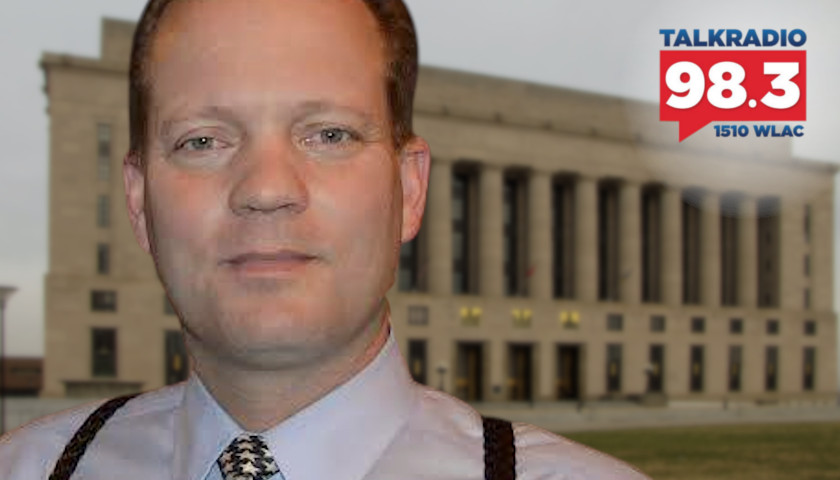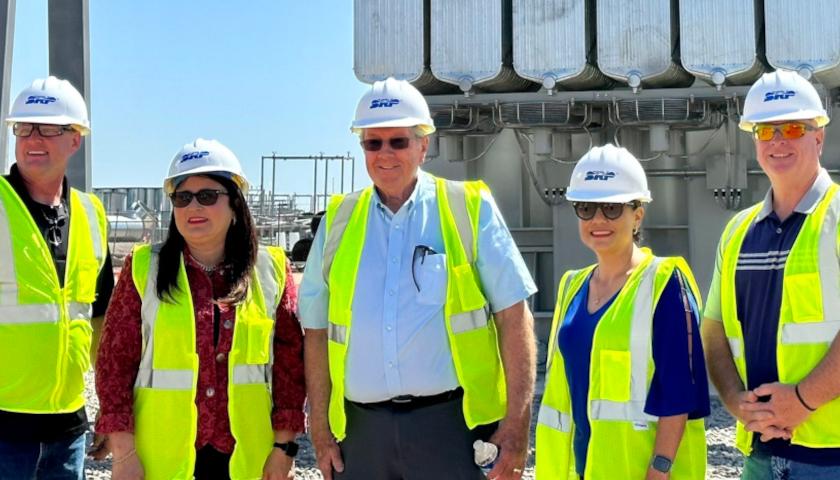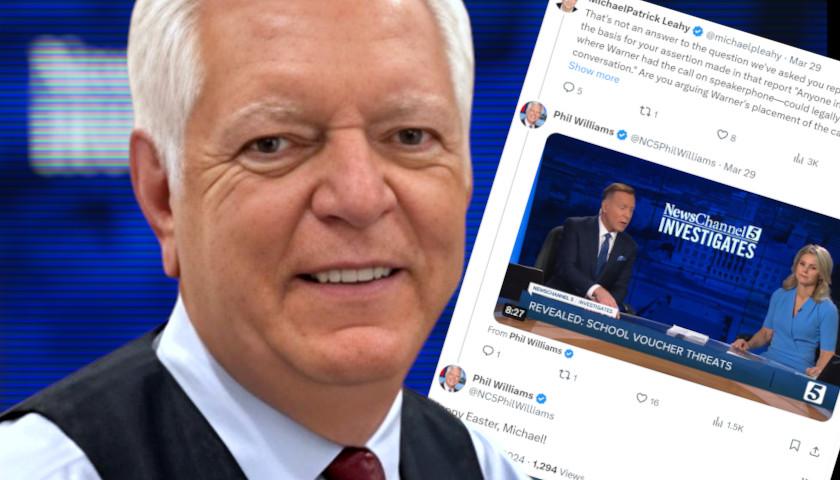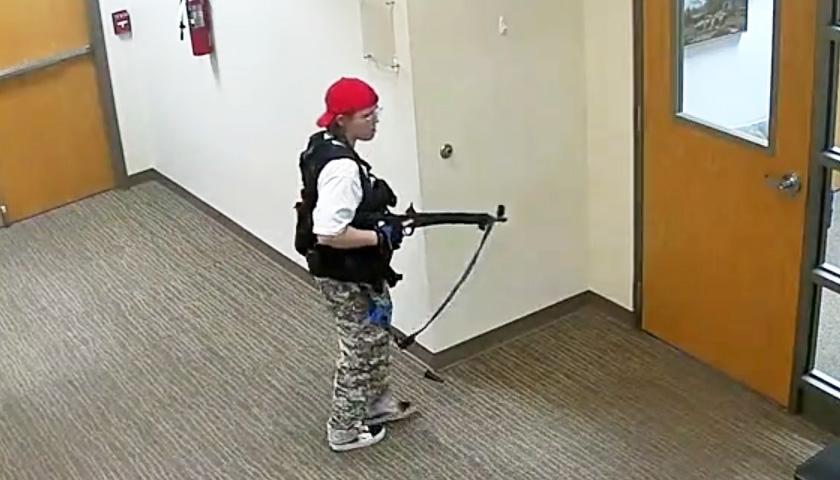Live from Music Row Friday morning on The Tennessee Star Report with Michael Patrick Leahy – broadcast on Nashville’s Talk Radio 98.3 and 1510 WLAC weekdays from 5:00 a.m. to 8:00 a.m. – host Leahy welcomed Nashville attorney Jim Roberts to the newsmakers line to give updates on the Nashville Taxpayer Protection Act referendum’s failure to get on the ballot.
Leahy: We are joined on the line now by Jim Roberts Attorney for 4GoodGovernment.com. He put together the Nashville Taxpayer Protection Act. I don’t know what happened in the court decision, but on Tuesday the Chancery Court Judge ruled against putting the Nashville Taxpayer Protection act on the ballot. I don’t understand why, Jim. Can you explain the judge’s thinking?
Roberts: Well, I’m not sure I can completely. We were very fortunate to have a very good Chancellor, but I’m actually very disappointed in the opinion. Metro went all out to try to keep this off the ballot. They brought up every possible argument. And essentially we had an out of state law applied to this ballot initiative. and so they look to another state and said well it wouldn’t be legal in that state and so we’re not gonna let in Tennessee. I think it’s a tragedy.
Leahy: Was that but what was that the explanation the Chancery Court Judge gave?
Roberts: No, it wasn’t like that of course.
Leahy: But I don’t understand when the law seems so clear that this should have been on the ballot. What specifically did the Chancellor say to keep it off the ballot? And what is the outcome of the lawsuit?
Roberts: Well, I think that the Chancellor felt like that there would be confusion that somehow the people didn’t understand what they were voting for was part of the problem that she thought. I disagree with that. I think the Taxpayer Protection Act was very clear. I think the voters understood what they were signing and wanted. But the court said it wasn’t clear.
The court didn’t like the fact that we didn’t identify the specific sections of the charter that we were trying to amend. There is no requirement to do that. the prerequisites to do it in the ballot initiative or very clear and we follow those to the “t”. But apparently, that wasn’t good enough. And so unfortunately by grafting on a lot of extra requirements, it was pretty easy to say that we didn’t meet the requirement.
Carmichael: Jim could your group or another group do another ballot initiative and address and focus on only one thing and cite the part of the act? or would in other words address her concerns with another ballot initiative and instead of trying to do four things or three things just do one thing? And essentially take everything? The city is fighting this for one reason.
They’re not fighting it for four reasons or fighting it four reasons. They are fighting it for one. Is the best course of action for those who ooh think that governments’ imposing a 34 percent increase in the property tax is just too far? Is one course of action to address the judge’s concerns in the ruling with another ballot initiative that cites exactly that? And cites that part of the code which she has said we didn’t do and only focus on one thing. Is that a possible way forward?
Roberts: Well, that’s certainly something we’re considering. while we don’t think there were too many different items or the people were confused. You have a great idea. And other people suggested that as well. Maybe we just go back and focus on one or two issues. There will be another ballot initiative put forth. People will get a chance to vote on this 34 percent tax increase. And they’re going to get a chance to vote it down. If we can’t repeal it retroactively it may be just simply doing the ballot initiative that says when you do the budget next year you reduce it down to what it was before.
Carmichael: Yeah, and if you do that on a single issue, you said one or two, and I’m just encouraging you to eliminate as many options for a judge or much confusion for the judge and focus on constraining our government from a massive spending increase. And frankly, we need to force the city government to do its job rather than become an indebted small, Chicago.
Roberts: I agree completely. And then trust me that’s something we’re thinking about. You know, we feel like we need to deal with what the chancellor ruled and respect that even if we disagree with it. We will come back and follow whatever the things that she’s asked us to do will do. But you’re absolutely right. We are going to definitely come back on the tax issue and we may narrow it down to one or two issues. But we felt like the people should really have an opportunity to vote on this. Metro’s efforts were really almost incredible. They threw tremendous resources and probably spent $100,000. all for the purpose of suppressing the people.
Leahy: Jim, do you have any intention to appeal of appealing this ruling by the Chancery Court Judge?
Roberts: We certainly do have that intention however, that doesn’t solve the problem. I mean, you know, here’s what litigation at the Appellate Court level doesn’t fix the tax problem. The real focus at this moment is to get this tax repealed and get this city back under some fiscal restraint. We’ll probably do both.
Leahy: Would you ask the Tennessee Supreme Court to undertake ruling on an expedited basis?
Roberts: That’s under consideration. It’s very hard to get the Supreme Court to do that. And if and quite honestly if we go the route of doing another ballot initiative then the expedited nature or requirement for that sort of goes away. They would not be inclined to do it if they looked down and saw that we were doing it, you know coming back again with another ballot. They might say well we don’t need to do this on an expedited basis.
You know, you’re talking a lot of work and Metro knows this. This is why they hired the former Supreme Court Justice and the former attorney general from the state of Tennessee. They threw big dollars up against this because they absolutely want to suppress the right to vote. And that’s the most important thing. It’s not so esoteric when it’s at the court of appeals. The most important thing is to put this issue up in front of the voters and let them speak loudly and get this 34 percent monkey off our backs.
Carmichael: I would just encourage you as you’re talking to us you’re saying to get this issue. I would encourage you to make it one issue. I mean truly make it one issue. That’s the simplest way to have a major win. I’m just concerned that the deck is stacked in a way that that if you don’t take the path of absolute least resistance but still getting the voters to focus on this, giving the voters a chance to have input on this one issue. That would be what I would encourage you to do because they’re looking for ways. I mean they reached out in to West Virginia.
Leahy: West Virginia. And now apparently we’re part of West Virginia.
Carmichael: They brought in the dead corpse of John Denver. (Laughter) But I would encourage you because the voters do care about this single issue. You’ve been busting your butt. And I can’t tell you how many people have told me how much they appreciate what you’re doing. And so I would just encourage you to narrow this thing down and take that judge’s ruling answer every single thing that that judge came back with and stick it right back in front of the voters and in front of the judge. And then if the judge rules against you again, then appeal it.
Roberts: That’s sort of been our thought process. They have unlimited resources because they’re spending your tax dollars to fight this. They’ll spend a million dollars to keep it off the ballot.
Leahy: No question about that. What would be a timeline for having a new petition ready for circulation for signatures?
Roberts: We are working on it right this minute and it will actually go out in seven days.
Leahy: Okay.
Roberts: I mean, we sort of knew when they geared up for war and the dishonesty and put forth their dishonest and disingenuous arguments we knew that they were going to put tremendous pressure on everybody. On the government employees and on the court system. We knew they were going all out. So we’ve been planning to see how far they would go and we’re ready for that.
Listen to the third hour here:
– – –
Tune in weekdays from 5:00 – 8:00 a.m. to the Tennessee Star Report with Michael Patrick Leahy on Talk Radio 98.3 FM WLAC 1510. Listen online at iHeart Radio.
Background Photo “Nashville City Hall” by euthman. CC BY-SA 2.0.








